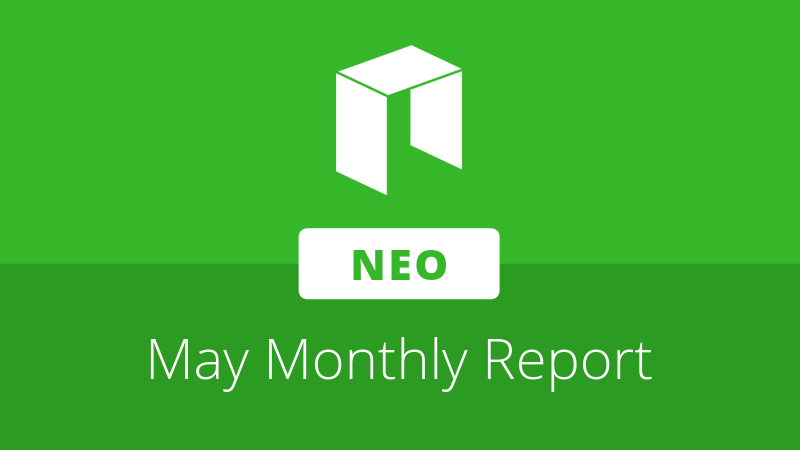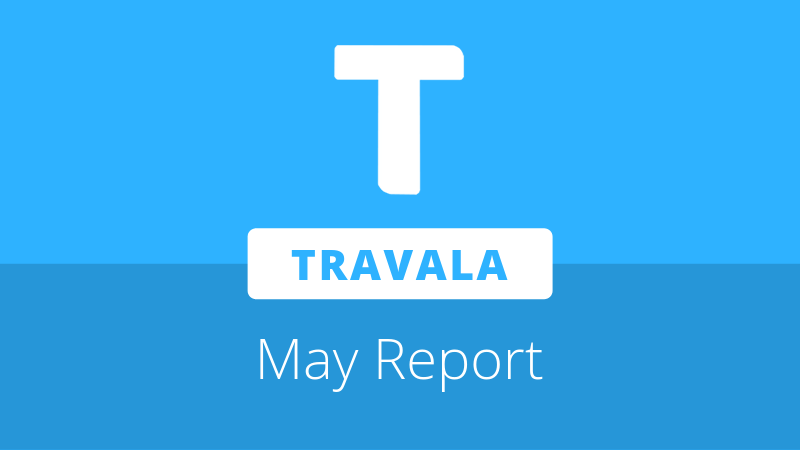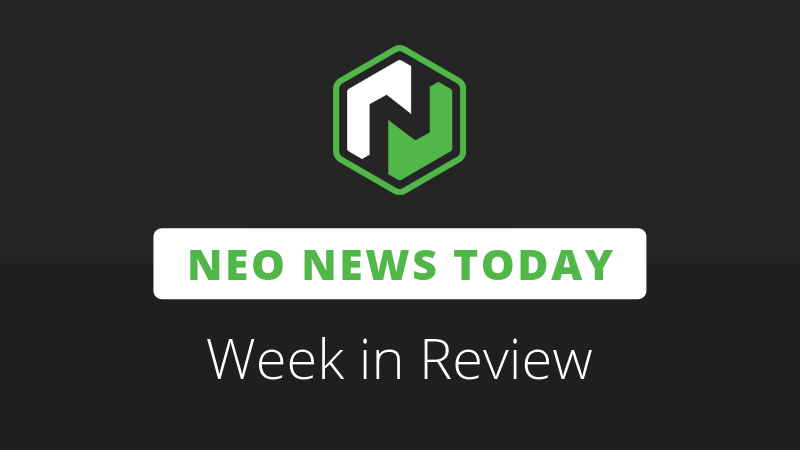
NEO Global Development has released its monthly report for May. The report summarized the majority of progress made in the NEO ecosystem by both the core developers and decentralized development communities. An infographic summary is available here.
It also highlighted NGD Seattle’s recent activities, including the hiring of Harry Pierson, project manager of IronPython for .NET and xlang. Pierson, who gave a talk on xlang at NEO DevCon 2019, has joined NEO following a 20-year career at Microsoft.
The NGD Shanghai office also reported its intention to expand, with NEO founder Da Hongfei recently announcing NGD’s search for a Technical Lead. The monthly report also notes that additional recruitment efforts are underway for the following roles:
- Associate manager, Ecosystem Growth
- Senior coordinator, Talent Acquisition
- Specialist, Overseas Media Relations
- Content editor
- Quality assurance engineer
- Blockchain integration engineer
- Blockchain software developer
Interested parties can contact NGD at career@neo.org.
Core Development
NGD has reported that the majority of core development is now being focused on NEO3. The existing NEO 2.x branches will only be updated with bug fixes and other changes when necessary.
Various new features have been implemented into the NEO 3.0 branch, including the NEO, GAS, and voting policy nature contracts. The TCP protocol has also been optimized, with support for compression to improve communication between NEO nodes. Finally, the core developers have successfully removed UTXO from NEO.
During May, NGD Shanghai completed testing of neo-cli v2.10.2, which includes an updated version of the dBFT consensus mechanism. The team also resolved various other bugs and is preparing to update the NEO MainNet with the latest version on June 3rd.
Projects, exchanges, and other entities that interact with the NEO blockchain directly using neo-cli should be aware that in the latest version, v2.10.2, the network fee mechanism has been adjusted relative to size on transactions larger than 1024 bytes.
- Low priority transaction – Less than 1024 bytes, no network fee or fee below 0.001 GAS
- High priority transaction – Less than 1024 bytes, network fee equal to or above 0.001 GAS
- Transactions >= 1025 bytes – Transaction size (in bytes) * 0.00001 GAS + 0.001 GAS
GAS claim transactions are always considered high priority. Entities running neo-cli nodes should also be aware that deploy or invocation transactions created using v2.10.2 will use 0.001 GAS as a starting fee. This does not affect transactions that are built elsewhere and only relayed via neo-cli nodes, so typical users are unaffected.
A full list of core changes for NEO3 and NEO 2.x can be viewed in the report. Additional information on changes to the network fee mechanism may be found here.
NGD Seattle
In addition to its hiring of Harry Pierson, NGD Seattle has also announced the ‘Engineering Excellence TechTalk Series,’ which will feature reputable entities from the software industry. The series will launch in June.
NGD Seattle also recently attended Consensus 2019 in New York, where it previewed the ‘F5 Developer Experience’ for NEO, in the form of the NEO Express Node and Toolkit for Visual Studio. These tools are hoped to help simplify and streamline the NEO dApp development experience.
John deVadoss, head of NGD Seattle, was recently interviewed by NEO News Today, where he offered his thoughts and insights on the blockchain regulatory environment and on NEO joining the Washington Technology Industry Association’s steering committee.
NEO Community Development
NGD’s monthly report for May also touched on the development direction of numerous NEO development communities. Comprehensive notes on these community developments may be found in the original report.
NEO SPCC reported the further implementation of core functionality for NeoFS, including data auditing methodology, monitoring, data migration, and a new object storage format alongside its API. NEO SPCC has now begun researching dBFT 2.0 as the consensus protocol for NeoFS and has begun implementing a Golang version. More information on NEO SPCC’s activities may be found here.
COZ updated the Neon wallet with watch-only address functionality and added an RSS feed of NEO News Today. Moving forward, the team will look at implementing offline and multisig transaction signing. COZ also reported that various improvements to neo-python have been implemented, including potential fixes for issues related to high memory usage. Neo-debugger-tools also saw notable improvements, including the ability to disassemble AVM files into opcodes, single-step debugging, auto-generation of text files and assorted other updates.
Neow3j continued the implementation of its wallet convenience layer and contract deployment functionality. Various bugs and features have been reviewed and merged, and a new documentation repository has been launched.
NEXT reported that the dAPI used by the NEOLine Chrome extension wallet has been refactored to follow the NEP standard specification. The team also pushed updates to the Blolys explorer, Token and Likeme dApps, and held two online tutorials to teach new NEXT members about NEO.
NeoResearch continued its research and development of dBFT and implemented improvements to the browser-based development suite NeoCompiler Eco. The team has also designed the first version of a NEO C++ compiler, which will eventually allow developers to write NEO smart contracts in C++.
NEL maintained its focus on the Teemo extension wallet and NEO Name Service DEX. NEO News Today has previously reported on NEL’s development progress in May; the first bi-weekly report may be found here, and the second can be found here.
NEO-ONE has begun implementing its own dAPI, designed to facilitate seamless interaction between wallets and dApps built with NEO-ONE. The team has fixed node inconsistencies between the C# VM and its own implementation, and has added functionality that allows NEO-ONE wallets to create many private keys from a single seed phrase.
Events
NEO attended several events over the course of May, most notably Consensus 2019 in New York. Consensus was attended by NEO founder Da Hongfei, NEO SPCC co-founder Sergei Liubich, NeoID co-designer Peter Lin, head of NGD Seattle John deVadoss, and NGD blockchain developer Wang Longfei.
Presentation and interview summaries from Consensus 2019 may be found below:
- Da Hongfei introduces the EcoBoost program
- Da Hongfei interview quotes
- Sergei Liubich demonstrates NeoFS
- Peter Lin on NeoID
- Longfei Wang and John deVadoss unveil upcoming dev tools
- John deVadoss interview quotes
NGD EG director Lili Zhao also attended two events in May. Zhao delivered a speech on ‘NEO Blockchain Banking’ at the Euro Forum in Switzerland on May 8th. Zhao was also invited by the Swiss National Bank to join a panel discussing crypto assets on May 31st.
On May 11th, NGD Korea regional manager Evan Hong and NEO Foundation technologist Steven Liu attended Korea University, where they presented NEO’s blockchain technology to post-graduate students. Hong also delivered a keynote speech on the NEO ecosystem at Jeju Shinhwa World on May 18th.
On May 12th, NGD EG director Wang Jiachao and NGD marketing associate manager Song Ping participated in the GF-Defi Ecological Project Conference in Shanghai. Song Ping gave a speech introducing the NEO project and its progress.
On May 25th, NGD senior marketing manager Sharlyne Lee gave a speech on expanding the NEO ecosystem at the second NEO JOY meetup in Shanghai. Various ecosystem projects are reported to have participated in the event.
The full report can be found at the below link:
https://neo.org/blog/details/4152







About The Author: Brett Rhodes
Brett is a blockchain enthusiast and freelance writer who originally began producing content for the gaming & eSports industries. Now he spends most of his time contributing in the Neo ecosystem.
More posts by Brett Rhodes